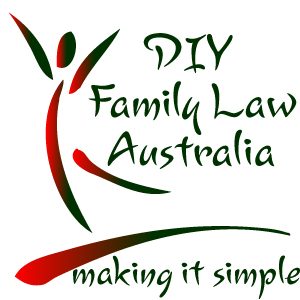
What should you be aware of with Consent Orders
Eventually most former couples reach some sort of agreement about either parenting arrangements for their children, how they are going to divide their property in their property settlement, or regarding both issues.
Once you have, there are major risks with leaving your agreement as an informal agreement, whether it is only a verbal agreement or whether you try to document it in some way.
The only way to make sure you have a legally enforceable agreement about your parenting arrangements that your former partner must follow, is if it is documented in Consent Orders.
A parenting plan will not be enforceable. For more see our separate information sheet Parenting Plans -v- Consent Orders.
Similarly, your property settlement agreement should be documented in a legally binding and enforceable way, although you have the option of either documenting a property settlement agreement in either Consent Orders or a Binding Financial Agreement. For more about the difference, read the information in Consent Orders -v- Binding Financial Agreement to document a Property Settlement.
If you and your former partner agree on either your parenting arrangements or property settlement, or both, you can put your agreement into Consent Orders and ask the Court to make Orders on the same terms as the agreement you have reached.
The Court must approve the Orders.
If the Court thinks the agreement you and your former spouse have reached is:
- For property settlement or spousal maintenance issues – “just and equitable” (which essentially means fair and reasonable);
- For parenting arrangements – “in the best interests of the child”;
then the Court will make the Orders you have agreed on.
Once the Court has approved the Consent Orders in the terms you have drafted and submitted, the Court will seal the Consent Orders document and send a sealed copy to both parties.
Consent Orders you have agreed on, do not carry any less weight than Court Orders made by a Judge after a final hearing (trial), just because you reached agreement on them yourselves.
Consent Orders have exactly the same legal force as if the Court had decided to make those same Orders after a full Court hearing with the parties and other people as witnesses, giving evidence and presenting documents.
Consequences can follow if the Orders are not complied with and are contravened (breached). For more, read out information sheet What happens if a Court Order is breached.
You should always get your own independent legal advice before you agree to Consent Orders.
If you are not able to afford to pay a lawyer to get legal advice, you should at least try to get some legal advice from a Community Legal Service. To find your local Community Legal Service, go to our Links and Resources Page.
Consent Orders – More Information
There are a lot of benefits to documenting your property settlement or parenting (or both) agreement in Consent Orders. Why doing so might be good for your own situation is explained in the information sheet What are the Advantages of Consent Orders.
We have prepared an easy to follow list of the steps involved in get the Court to make the Consent Orders you are seeking. Read our information sheet What is the procedure to get Court issued Consent Orders.
Will Consent Orders you prepare yourself without using a Lawyer still be binding and enforceable? We have a separate Fact sheet about doing your own Consent Orders and their enforceability.
You need to know whether the Court is likely to make the Consent Orders you have agreed on with your former spouse. See our the information sheet Will the Court make the Consent Orders we agree on.
You can make an application for Consent Orders about issues including Parenting, Property Settlement and Spousal Maintenance, however there are some issues about which the Court will not be prepared to make Consent Orders. Find out more in our information sheet When can you use Consent Orders.
Connect with us on Facebook

Other Pages in the Consent Orders Section
- The Basics you need to know about Consent Orders
- When can you use Consent Orders
- Why should I get Consent Orders: The Benefits
- Will the Court make the Consent Orders we agree on
- What is the procedure & steps involved to get Consent Orders
- Consent Orders or Parenting Plan to document Parenting Agreement
- Consent Orders or BFA to document Property Settlement
- Breaching (Contravening a Court Order (or Consent Order)
- Changing a Final Parenting Order when the other party agrees
- Changing a Final Parenting Order when the other party does not agree


